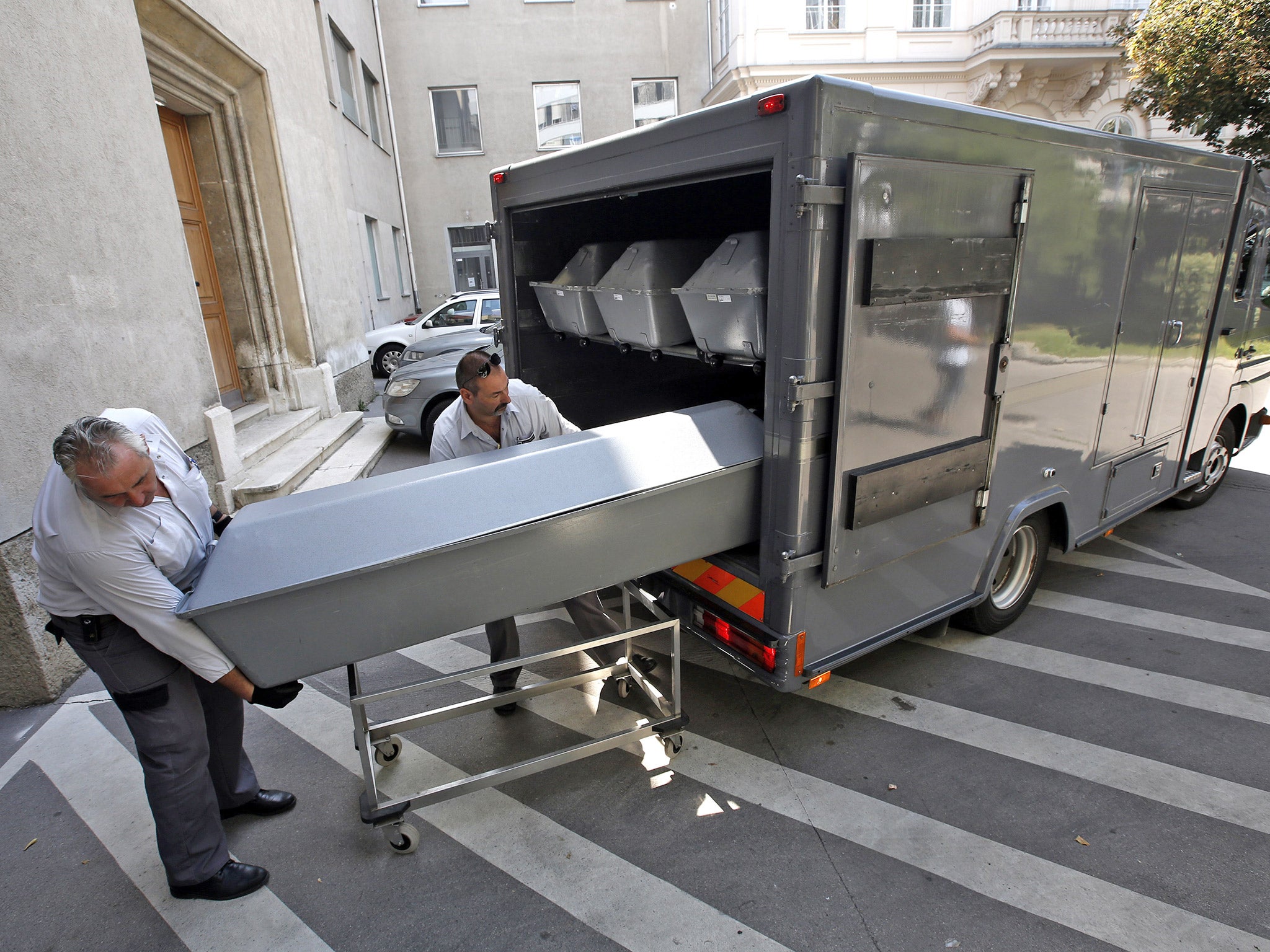Refugee crisis: The Iraqi men whose pursuit of a better life in Europe ended in mass suffocation
Tens of thousands of refugees from war-ravaged countries in the Middle East are trying to reach Europe, fuelling a deadly cross-border smuggling trade

“Are you the father of Shwan?” Jamal Hussein did not recognise the voice on the phone.
His son, Shwan, 23, had left Iraqi Kurdistan for Europe at the end of July but had not been heard of since 24 August, when he told his father he was about to get into a van bound for Germany. The caller sent Mr Hussein, 49, a photo of his son taken at a police station earlier in the trip to identify him.
“Yes, this is my son,” Mr Hussein said. The man on the phone did not respond. “I called back and he didn’t say anything. I called again and he said he died with 70 others in a truck,” Mr Hussein told The Independent.
This week, Shwan’s body was brought back home to Sulaimaniyah from Austria, where he died crammed in the back of a truck with 70 others, in one of the worst tragedies of the growing crisis in Europe.
Tens of thousands of refugees from war-ravaged countries in the Middle East are trying to reach Europe, fuelling a deadly cross-border smuggling trade. So, too, are thousands of migrants, drawn to Europe to escape poverty and political turmoil and enter nations with the apparent promise of work.
Over the last three months, the UN estimates that upwards of 50,000 Iraqis have left for Europe. More than three million people have been displaced inside Iraq by the war with Isis, and Iraqis from all backgrounds cite security fears besides a weak economy, government failings and the perceived possibility of getting asylum in Europe as reasons for leaving.
Kurds in the north of Iraq do not face the threat of daily violence despite a 600-mile front line with Isis. Instead many are disenchanted with governance in their semi-autonomous region and dream of what they see as economic opportunities and social freedoms in Europe.
Shwan dropped out of school aged 12 and began working as a building labourer earning £8-£12 a day. One of seven children, he did the job for six years before working at a soft drinks factory. Before he left he was working as a truck driver delivering fruit and made less than £350 a month. Outside work he would practise Taekwando.
Before leaving he explained to his father: “I have dreams and I can’t make them happen here.” He said his salary was too low and he did not know how he would afford to eventually get married and own a home. “He thought that in Europe he could get a better job and salary,” said Mr Hussein, adding that “he was young, and you know the sorts of dreams we have when we are young”.
On 24 August Shwan called his father at 8pm and said: “We are about to go in the truck across Austria.” He said the smugglers were asking for another £440 for the final leg of the journey to Germany. Ahmed Usman, 41 whose brother, Saeed Usman, 35, also died in the truck, said that he received the same request for money that night, which was also the date of their last conversation.
The cause of death of the bodies discovered on 27 August in a refrigerator truck near the Hungarian border by Austrian officials is believed to be suffocation.
Mr Usman said the smugglers who took his brother were mostly Kurdish. “They don’t care about humanity, they think only about money and business,” he said. Saeed worked as an electrical engineer and used to run a computer shop. “His life was good and his job was really good. People worked for us and his shop still exists,” he added.
Saeed loved political discussion and watching football, particularly Spanish teams, ontelevision. His brother said he left because he was angry with the Kurdish political parties and because he saw others had made it to Europe.
Mr Hussein paid the smugglers just over £6,500 for Shwan’s journey, half of which he borrowed. “We paid more because I wanted to choose the best way to send him. I didn’t think he would die like this,” he said. He was afraid Shwan would drown at sea if he went by boat. Instead he heard that too many people were crammed into the truck and there was not enough oxygen. He is not sure if his money will be reimbursed.
In Bulgaria, Shwan was arrested for crossing illegally. He called his family and told them he was tired and wanted to go back, “I was wrong to choose Europe,” he told his father on the phone. Shwan was buried on 19 September less than two months after saying goodbye.
Mr Usman, who paid £6,400 for his brother’s journey, decided to hide the news of Saeed’s death from the family until his body arrived this week. Instead, on finding out, he told The Independent that he got into his car and drove in circles around the city, crying. He thought, “Maybe I could have stopped him going or perhaps I didn’t find the best way for him to go. I want to know, did the smugglers force him into that van or did he he go in himself?” What was the reason?”
Join our commenting forum
Join thought-provoking conversations, follow other Independent readers and see their replies
Comments
Bookmark popover
Removed from bookmarks